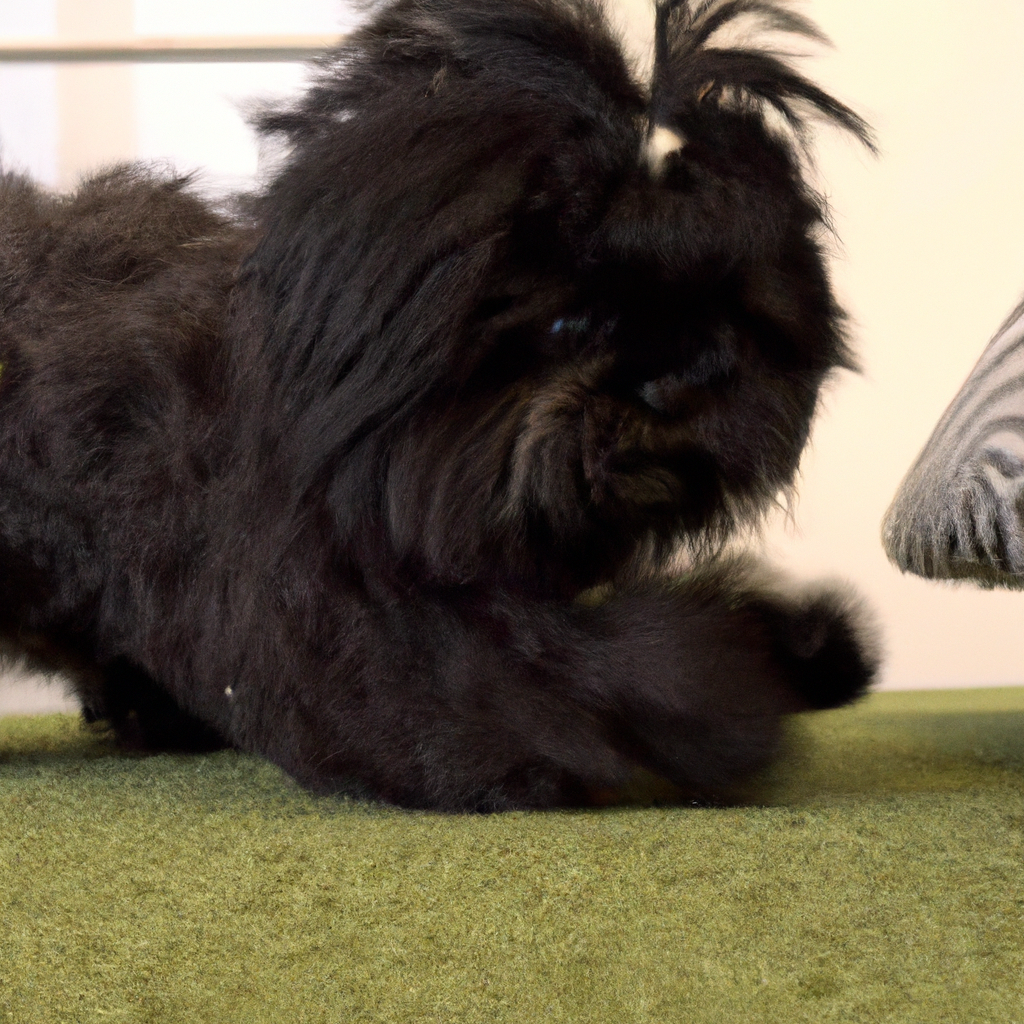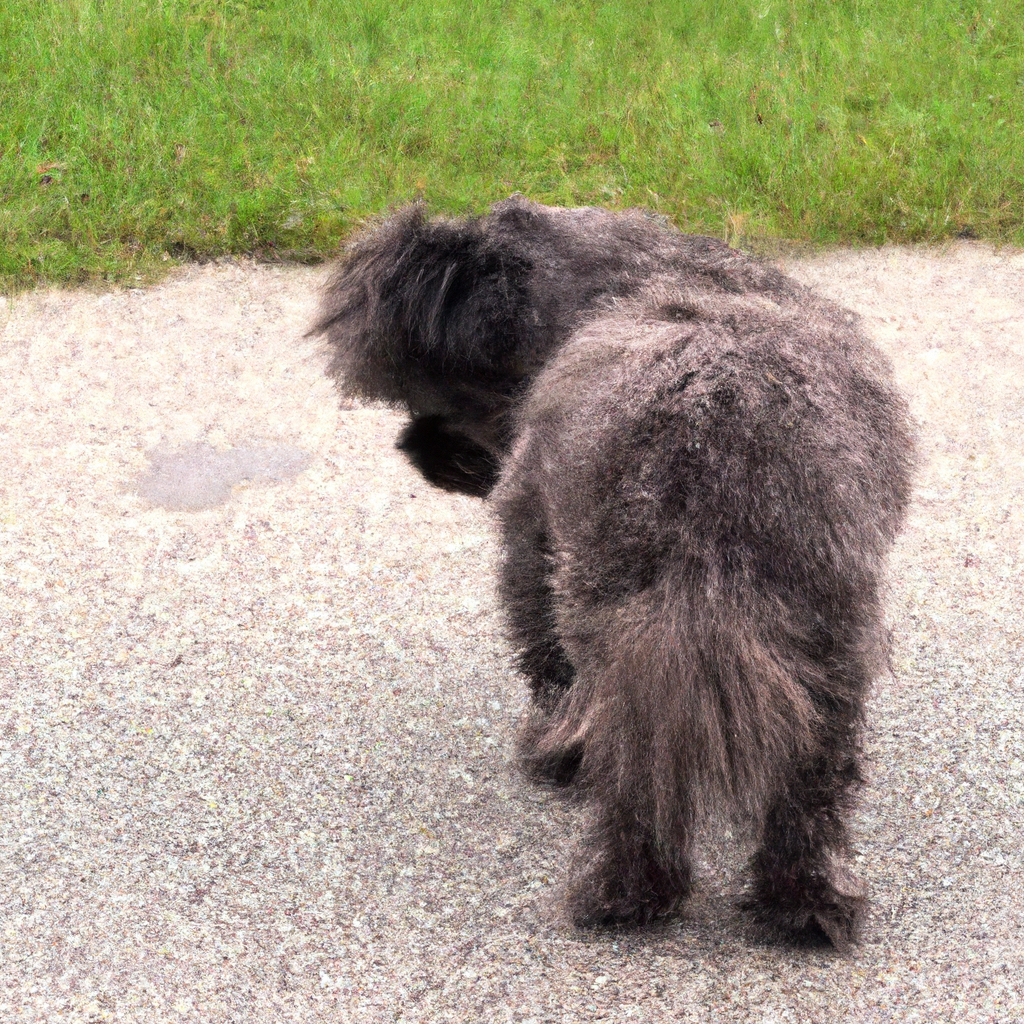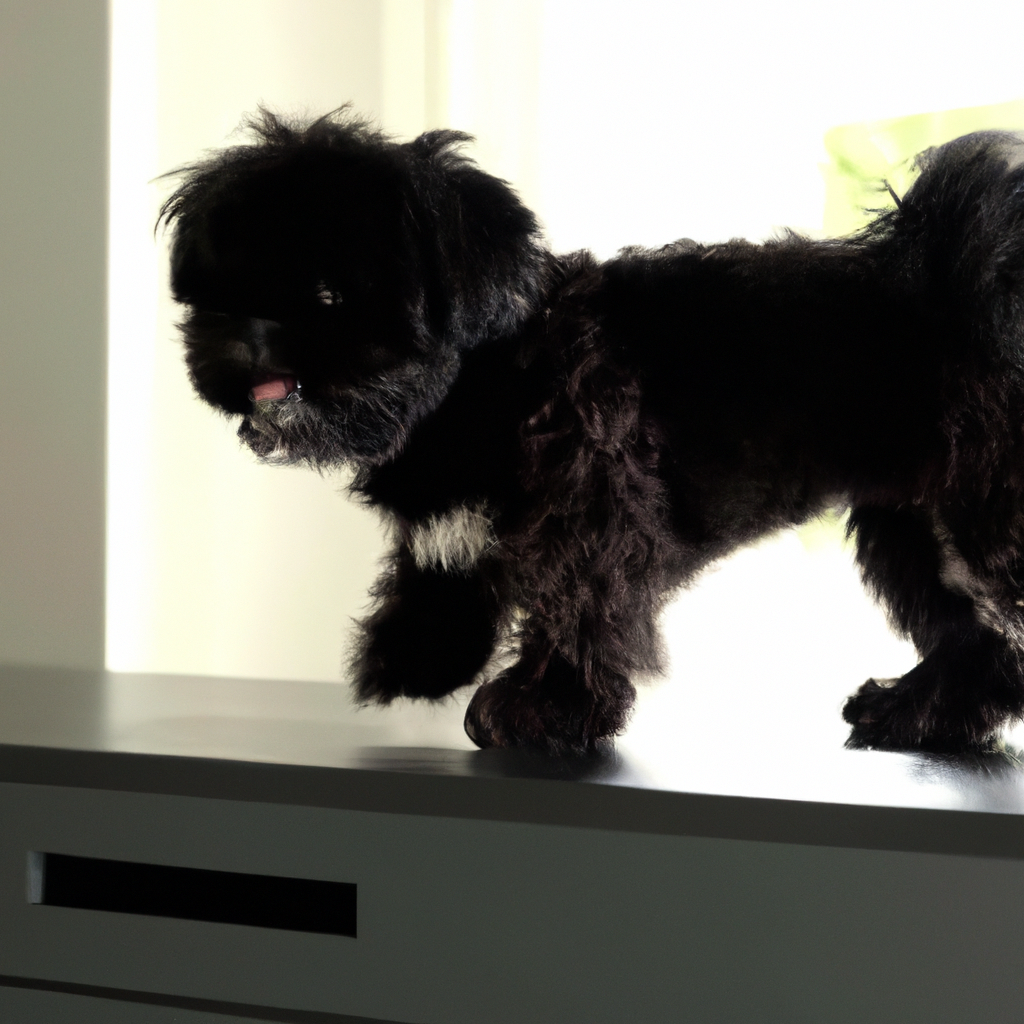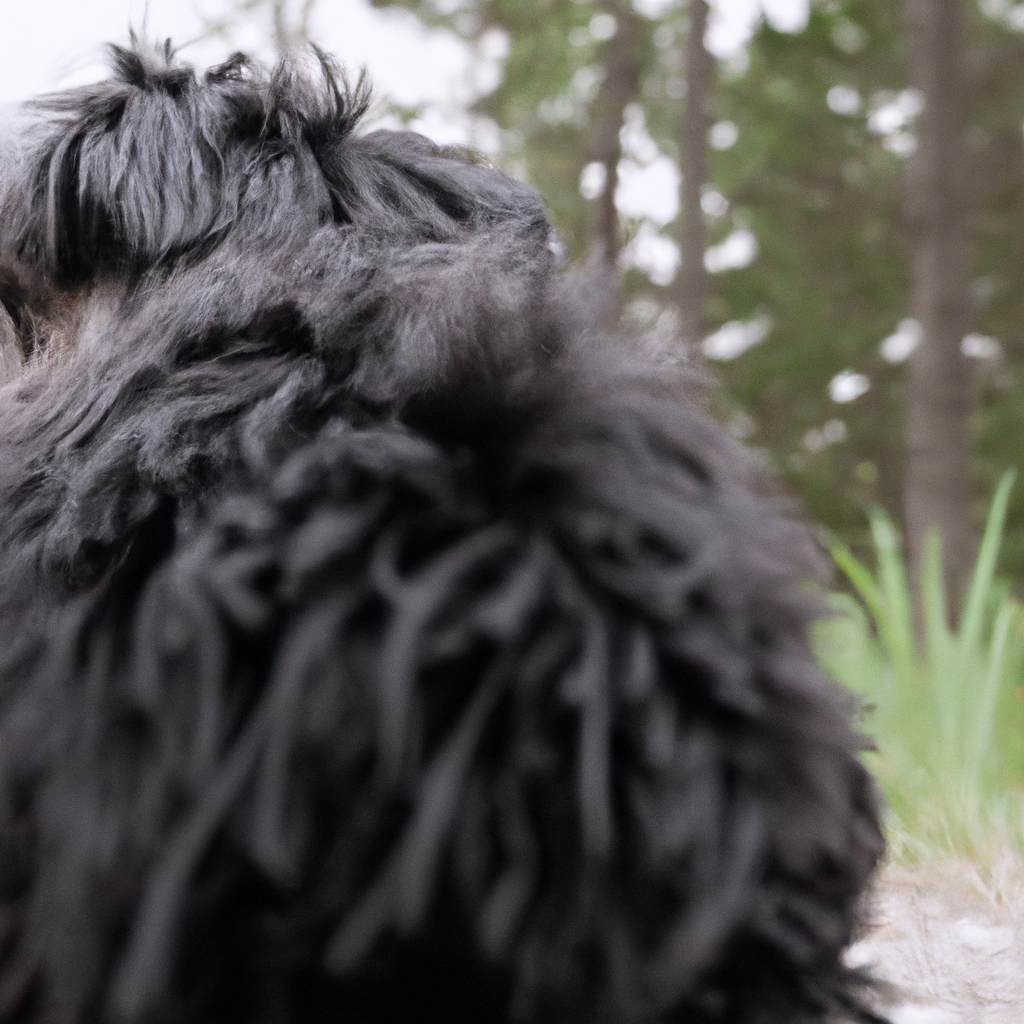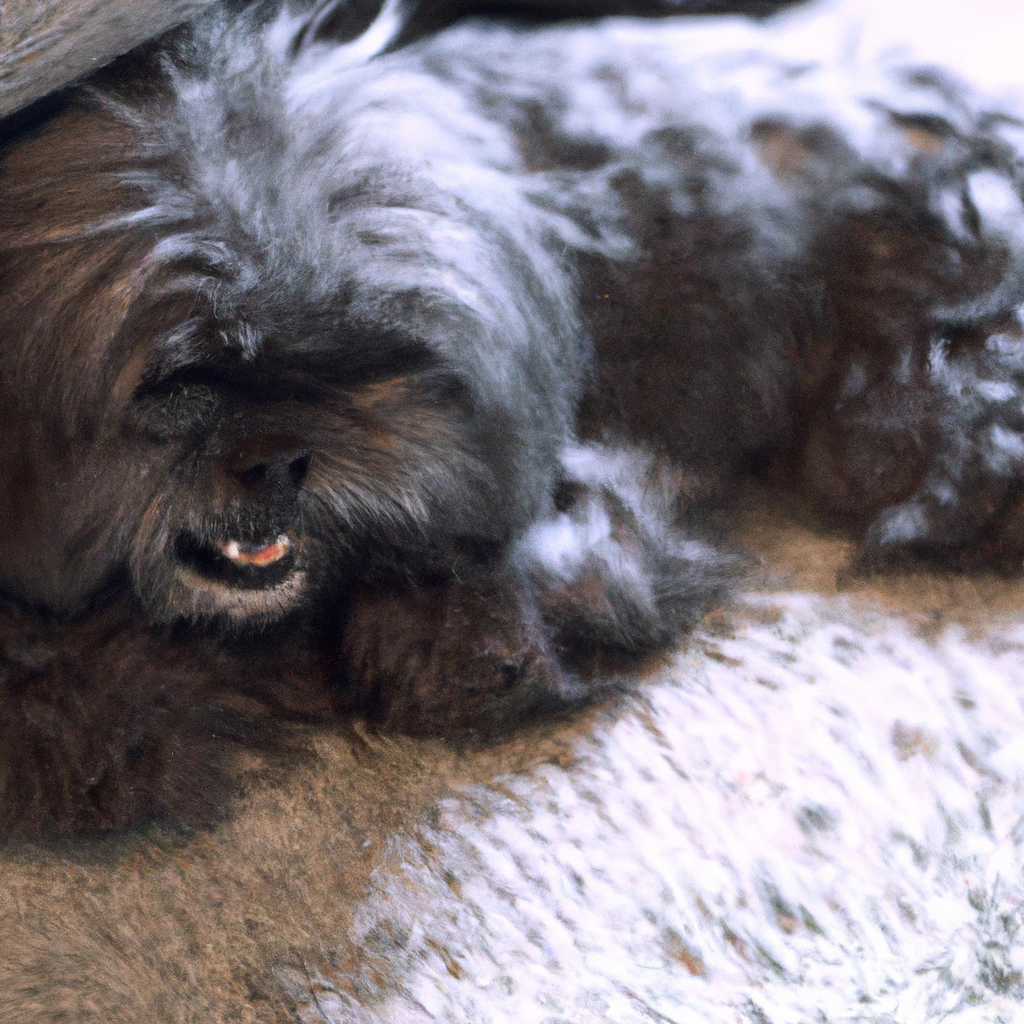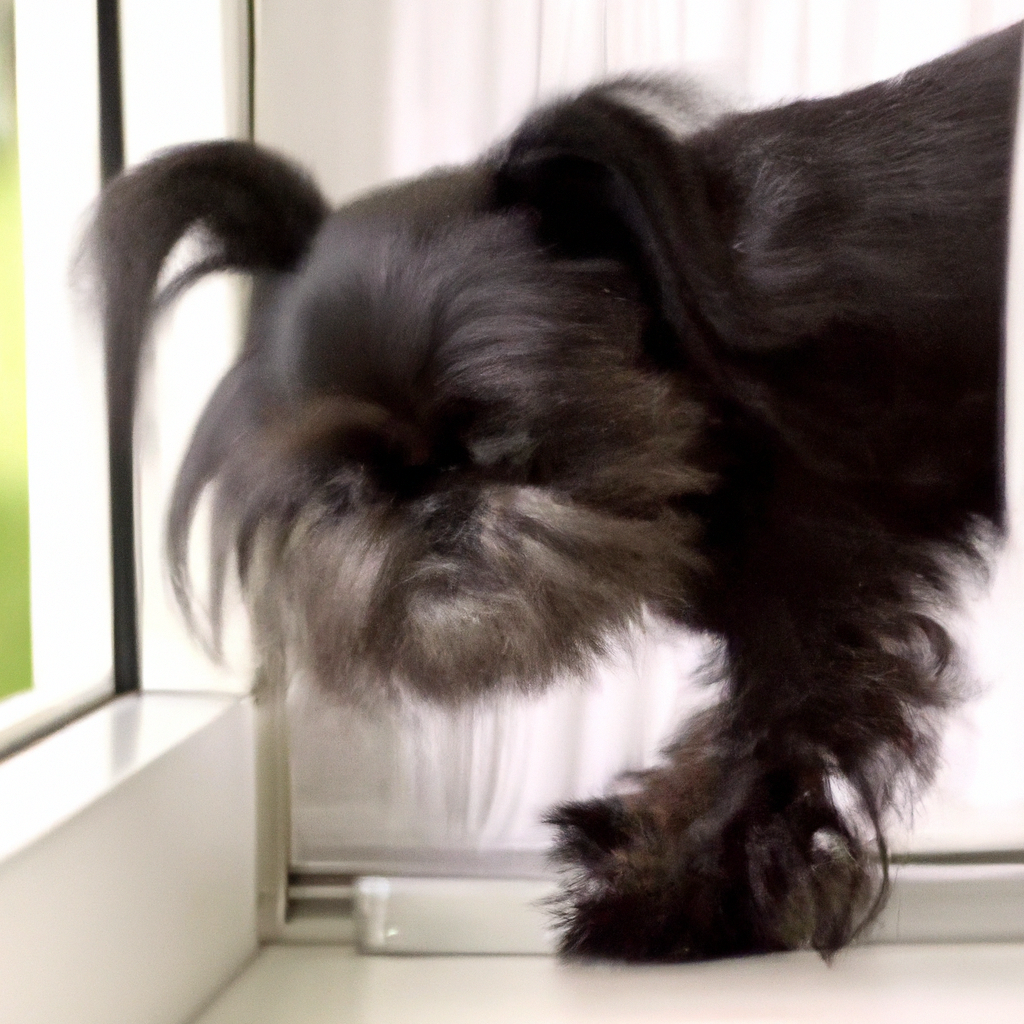Training Affenpinschers to overcome behavioral problems is a process that involves understanding the unique characteristics and temperament of this particular breed. Affenpinschers, also known as “Monkey Terriers,” are known for their bold and stubborn nature, which can sometimes lead to behavioral issues. However, with the right training techniques, these small, intelligent dogs can be taught to overcome these problems. This involves a combination of positive reinforcement, consistency, and patience. The training process not only helps in managing the dog’s behavior but also strengthens the bond between the pet and its owner.
Understanding and Addressing Aggression in Affenpinschers
Training Affenpinschers, affectionately known as “Monkey Dogs,” to overcome behavioral problems can be a challenging yet rewarding task. One of the most common issues that owners face is aggression. Understanding and addressing this aggression is crucial to ensure a harmonious relationship between you and your furry friend.
Affenpinschers are known for their bold and stubborn nature, which can sometimes manifest as aggression. This behavior is often a result of fear, territoriality, or a lack of socialization. It’s important to remember that aggression is not a trait inherent to the breed, but rather a behavior that can be modified with proper training and patience.
Firstly, it’s essential to understand the root cause of the aggression. Is your Affenpinscher lashing out due to fear or anxiety? Or is it a territorial issue? Identifying the trigger can help you tailor your training approach effectively. For instance, if your pet is showing signs of fear-based aggression, it’s crucial to gradually expose them to the object or situation causing the fear, ensuring they feel safe and secure throughout the process.
Next, it’s important to establish a consistent training routine. Affenpinschers respond well to positive reinforcement. Rewarding good behavior with treats, praise, or playtime can encourage your pet to repeat the behavior. On the other hand, punishing your pet for aggressive behavior can exacerbate the problem, making them more fearful or defensive. Instead, try to redirect their attention or energy towards something more positive when they start showing signs of aggression.
Socialization is another key aspect of addressing aggression in Affenpinschers. These dogs are naturally sociable and curious, but without proper socialization, they can become wary of unfamiliar people or animals, leading to aggressive behavior. Regularly exposing your Affenpinscher to different environments, people, and animals can help them become more comfortable and less likely to react aggressively.
Training an Affenpinscher to overcome aggression also requires patience and understanding. It’s important to remember that behavioral changes don’t happen overnight. It may take weeks or even months of consistent training for your pet to fully overcome their aggressive tendencies. During this time, it’s crucial to remain patient and supportive, providing your pet with plenty of positive reinforcement to encourage their progress.
In some cases, professional help may be necessary to address aggression in Affenpinschers. If your pet’s aggressive behavior persists despite your best efforts, it may be beneficial to consult with a professional dog trainer or a veterinary behaviorist. These experts can provide you with personalized training strategies and techniques to help manage your pet’s aggression effectively.
In conclusion, training an Affenpinscher to overcome aggression involves understanding the root cause of the behavior, establishing a consistent training routine, socializing your pet, and exercising patience. With time, consistency, and a lot of love, your Affenpinscher can learn to overcome their aggressive tendencies, leading to a happier and healthier relationship between you and your pet. Remember, every Affenpinscher is unique, and what works for one may not work for another. Therefore, it’s important to tailor your training approach to your pet’s specific needs and personality.
Effective Techniques for Curbing Excessive Barking in Affenpinschers
Training Affenpinschers, affectionately known as “Monkey Dogs,” can be a delightful experience. These small, energetic dogs are known for their playful and adventurous nature. However, like any breed, they can develop behavioral problems if not properly trained. One common issue with Affenpinschers is excessive barking. Fortunately, there are effective techniques to curb this behavior and help your Affenpinscher become a well-behaved member of your family.
Firstly, it’s important to understand why your Affenpinscher might be barking excessively. Dogs bark for a variety of reasons, including boredom, anxiety, or a response to certain stimuli in their environment. Affenpinschers, in particular, are known for their alert and protective nature, which can lead to excessive barking if they perceive a threat. Therefore, understanding the root cause of the barking is the first step in addressing the issue.
Once you’ve identified the cause, you can begin to implement training techniques to curb the barking. One effective method is positive reinforcement. This involves rewarding your Affenpinscher for quiet behavior and ignoring or redirecting them when they bark excessively. For instance, if your dog barks when someone comes to the door, you can train them to go to a specific spot and stay quiet. When they do this successfully, reward them with a treat or praise. Over time, they’ll associate quiet behavior with positive outcomes.
Another technique is desensitization. If your Affenpinscher barks at specific triggers, such as other dogs or people passing by the window, gradually expose them to these triggers in a controlled environment. Start from a distance where your dog doesn’t react and reward them for staying calm. Gradually decrease the distance over time, always rewarding calm behavior. This process can take time and patience, but it’s a proven method for reducing reactive barking.
In addition to these techniques, it’s crucial to ensure your Affenpinscher is getting enough physical and mental stimulation. These dogs are energetic and intelligent, and if they’re not adequately stimulated, they may resort to barking out of boredom. Regular walks, playtime, and puzzle toys can help keep your Affenpinscher entertained and reduce the likelihood of excessive barking.
While these techniques can be highly effective, it’s important to remember that consistency is key. Training should be a regular part of your routine, and everyone in the household should be on board with the training methods. This ensures your Affenpinscher receives a consistent message, which can significantly improve the effectiveness of the training.
Lastly, don’t be afraid to seek professional help if you’re struggling to curb your Affenpinscher’s barking. Dog trainers and behaviorists have a wealth of knowledge and experience in dealing with behavioral issues and can provide valuable guidance and support.
In conclusion, training an Affenpinscher to overcome excessive barking is entirely achievable with patience, consistency, and the right techniques. By understanding the cause of the barking, using positive reinforcement and desensitization, providing adequate stimulation, and seeking professional help if needed, you can help your Affenpinscher become a well-behaved and happy member of your family.
Training Affenpinschers to Overcome Separation Anxiety
Affenpinschers, affectionately known as “Monkey Dogs,” are a small breed known for their playful and adventurous spirit. However, like many other breeds, they can sometimes struggle with behavioral problems, particularly separation anxiety. Training Affenpinschers to overcome this issue can be a challenging task, but with patience, consistency, and the right approach, it is certainly achievable.
Separation anxiety in Affenpinschers, as in other breeds, is characterized by distress and behavioral problems when they’re left alone. This can manifest in various ways, such as excessive barking, destructive behavior, or attempts to escape. It’s important to understand that this is not a sign of disobedience or spite, but rather a response to the fear and anxiety they feel when separated from their owners.
The first step in training Affenpinschers to overcome separation anxiety is to create a safe and comfortable environment for them. This could be a specific room or a crate where they feel secure. Fill this space with their favorite toys, blankets, and treats to make it more appealing. The goal is to make this space a positive place where they can feel relaxed and content, even when you’re not around.
Next, it’s crucial to gradually acclimate your Affenpinscher to being alone. Start by leaving them alone in their safe space for short periods, gradually increasing the duration over time. This slow and steady approach can help them understand that being alone is not something to fear, and that you will always return. Remember, patience is key here. Rushing this process can potentially exacerbate their anxiety.
In addition to creating a safe space and gradual desensitization, it’s also beneficial to establish a calm and consistent routine for your Affenpinscher. Dogs thrive on routine, and having a predictable schedule can help alleviate their anxiety. This routine should include regular feeding times, walks, playtime, and rest periods. It’s also helpful to have a calm departure and arrival routine to avoid triggering their anxiety.
Another effective strategy is to provide your Affenpinscher with plenty of physical and mental stimulation. Regular exercise and playtime can help burn off excess energy and reduce anxiety. Mental stimulation, such as puzzle toys or training exercises, can also keep their mind occupied and reduce the likelihood of destructive behavior.
While these strategies can be effective, it’s important to remember that every Affenpinscher is unique, and what works for one may not work for another. It may take some trial and error to find the best approach for your furry friend. If your Affenpinscher’s separation anxiety is severe or if these strategies don’t seem to be working, it may be beneficial to seek professional help. A professional dog trainer or a veterinary behaviorist can provide personalized guidance and support.
Training Affenpinschers to overcome separation anxiety can be a challenging journey, but it’s also an opportunity to deepen your bond with your furry friend. With patience, consistency, and a little bit of creativity, you can help your Affenpinscher feel more secure and confident, even when they’re alone. Remember, the goal is not just to manage their behavior, but to help them feel safe and loved. After all, that’s what being a pet parent is all about.
Dealing with Destructive Chewing in Affenpinschers: A Comprehensive Guide
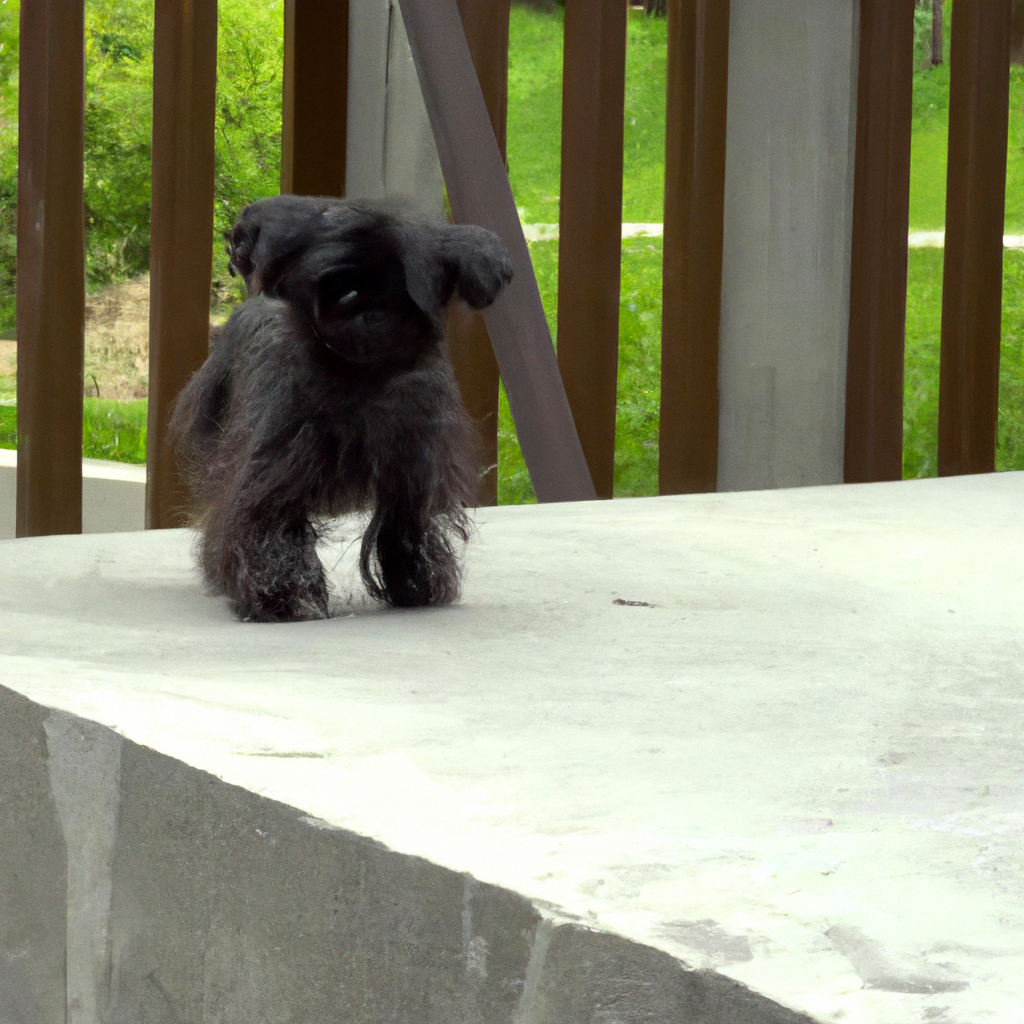
Training Affenpinschers, affectionately known as “monkey dogs,” can be a delightful experience. However, like any breed, they can exhibit behavioral problems, one of which is destructive chewing. This article will provide a comprehensive guide on how to deal with this issue effectively.
Affenpinschers are known for their playful and adventurous nature. They are curious dogs that love to explore their surroundings. However, this curiosity can sometimes lead to destructive chewing. This behavior is not only damaging to your belongings but can also be harmful to the dog if they ingest something harmful. Therefore, it’s crucial to address this issue promptly.
Firstly, it’s important to understand that chewing is a natural behavior for dogs. It helps them relieve stress, keep their teeth clean, and stay entertained. However, when this behavior becomes destructive, it’s a sign that the dog is either bored, anxious, or lacks proper chew toys.
To start addressing this issue, ensure your Affenpinscher has a variety of appropriate chew toys. These toys should be durable and safe for your dog to chew on. Rotate them regularly to keep your dog interested and engaged. If your dog has a favorite toy, make sure it’s always available.
Next, consider the role of exercise and mental stimulation in curbing destructive behavior. Affenpinschers are energetic dogs that require regular physical activity. A lack of exercise can lead to pent-up energy, which may manifest as destructive chewing. Regular walks, playtime, and training sessions can help burn off this energy and reduce the likelihood of destructive behavior.
In addition to physical exercise, mental stimulation is equally important. Puzzle toys, training sessions, and interactive games can keep your Affenpinscher’s mind engaged and reduce boredom, a common trigger for destructive chewing.
Another effective strategy is to use deterrent sprays on items that your dog frequently chews. These sprays have a bitter taste that discourages dogs from chewing. However, remember that this is a temporary solution and should be used in conjunction with other strategies.
If your Affenpinscher continues to chew destructively despite these efforts, it may be a sign of separation anxiety. This is a more serious issue that may require professional help. A dog behaviorist or a vet can provide guidance on how to manage this condition.
Lastly, remember that patience and consistency are key when dealing with behavioral problems. Training an Affenpinscher to overcome destructive chewing won’t happen overnight. It’s a gradual process that requires consistent effort.
In conclusion, dealing with destructive chewing in Affenpinschers involves understanding the root cause of the behavior, providing appropriate chew toys, ensuring regular physical and mental stimulation, using deterrent sprays, and seeking professional help if necessary. With patience, consistency, and the right strategies, you can help your Affenpinscher overcome this behavioral problem and enjoy a harmonious relationship with your furry friend.
How to Stop Your Affenpinscher from Jumping on Guests
Training Affenpinschers to overcome behavioral problems can be a challenging task, especially when it comes to the issue of them jumping on guests. This behavior, while often seen as a sign of affection or excitement, can be problematic and even dangerous, particularly if your guests are not comfortable with dogs or if they are frail or elderly. However, with patience, consistency, and the right techniques, you can train your Affenpinscher to greet guests in a more appropriate manner.
Firstly, it’s important to understand why your Affenpinscher jumps on guests. Dogs often jump up to get closer to our faces, as this is how they naturally greet each other. They also do it to get attention. If your dog jumps on guests and is rewarded with attention, even if it’s negative attention like shouting or pushing them away, they will continue to do it. Therefore, the first step in stopping this behavior is to stop rewarding it.
One effective method is to ignore your dog when they jump up. This means no eye contact, no talking, and no touching. Turn your back if you need to. Once your dog has all four paws on the ground, then you can give them attention. This teaches them that jumping up gets them nothing, but staying down gets them what they want.
Another technique is to teach your Affenpinscher an alternative behavior. For example, you could train them to sit or lie down when guests arrive. Start by practicing this behavior without any distractions. Once your dog has mastered it, you can start adding in distractions, like someone knocking on the door. Reward your dog for staying seated or lying down, even as the distraction level increases.
When guests arrive, ask them to ignore your dog until they are calm and seated. This might take a few minutes, but it’s important to be patient. Once your dog is calm, your guests can then give them attention. If your dog starts to jump up, your guests should immediately stop giving them attention and you should redirect your dog to the desired behavior.
Remember, consistency is key. Everyone in the household, as well as regular visitors, need to follow these rules. If some people allow your dog to jump up while others don’t, it will confuse your dog and make training more difficult.
Training an Affenpinscher to stop jumping on guests can take time and patience, but it’s definitely achievable. It’s also a great way to improve your dog’s overall behavior and manners. Plus, it makes visits from guests a more enjoyable experience for everyone involved.
In conclusion, training your Affenpinscher to overcome behavioral problems like jumping on guests involves understanding why they do it, stopping rewarding the behavior, teaching an alternative behavior, and being consistent. With time and patience, your Affenpinscher will learn to greet guests in a more appropriate and respectful manner.
Preventing Food Aggression in Affenpinschers
Training Affenpinschers, affectionately known as “monkey dogs” due to their distinctive faces, can be a rewarding experience. However, like any breed, they can exhibit behavioral problems. One such issue that can arise is food aggression. This is a common problem in many dog breeds, but with the right approach, it can be effectively managed in Affenpinschers.
Food aggression in dogs is a form of resource guarding where a dog becomes overly protective of its food. It can manifest in various ways, such as growling, snapping, or even biting when someone approaches their food. This behavior can be particularly pronounced in Affenpinschers, a breed known for its bold and stubborn nature. However, it’s important to remember that food aggression is not a sign of a ‘bad’ dog, but rather a natural instinct that needs to be managed with patience and understanding.
The first step in preventing food aggression in Affenpinschers is to establish a routine. Dogs thrive on consistency, and a predictable feeding schedule can help alleviate anxiety around meal times. Feed your Affenpinscher at the same times each day, and ensure they have a quiet, undisturbed place to eat. This can help them feel secure and less likely to guard their food.
Next, it’s crucial to build trust with your Affenpinscher. This can be achieved by hand-feeding them. Start by giving them a few pieces of kibble from your hand before placing the rest in their bowl. This helps them associate your presence with positive experiences, reducing the likelihood of food aggression. Over time, you can gradually move your hand closer to the bowl until you can touch it without your dog showing signs of discomfort.
Another effective strategy is the ‘trade-up’ method. This involves offering your Affenpinscher a higher-value treat in exchange for what they’re guarding. For instance, if your dog is guarding their kibble, offer them a piece of chicken or a favorite treat. This teaches them that giving up their food results in getting something even better, reducing their need to guard.
It’s also important to teach your Affenpinscher the ‘leave it’ command. This command is useful in many situations, not just with food aggression. Start by holding a treat in your closed hand. When your dog tries to get it, say ‘leave it.’ Once they stop trying and move away, reward them with the treat. Repeat this exercise regularly until your dog understands that ‘leave it’ means they need to back off.
While these strategies can be effective, it’s essential to approach the issue of food aggression with patience and consistency. Never punish your Affenpinscher for showing signs of food aggression, as this can exacerbate the problem. Instead, focus on positive reinforcement and gradual desensitization.
In some cases, food aggression can be a sign of an underlying health issue. If your Affenpinscher’s food aggression persists despite your best efforts, it’s worth consulting with a vet or a professional dog behaviorist. They can help identify any potential medical issues and provide further guidance on managing this behavior.
In conclusion, while food aggression can be a challenging issue in Affenpinschers, it’s not insurmountable. With patience, consistency, and the right strategies, you can help your Affenpinscher overcome this behavior, leading to a happier and healthier relationship with your furry friend.
Tips for Training Affenpinschers to Walk on a Leash without Pulling
Training Affenpinschers, affectionately known as “monkey dogs” due to their distinctive faces, can be a delightful experience. These small, energetic dogs are known for their playful and adventurous nature. However, like any breed, they can exhibit behavioral problems, particularly when it comes to leash training. Walking an Affenpinscher on a leash without pulling can be a challenge, but with patience, consistency, and the right techniques, it’s certainly achievable.
Firstly, it’s important to understand why your Affenpinscher might be pulling on the leash. Often, it’s simply because they’re excited and eager to explore their surroundings. They’re naturally curious creatures, after all. However, it can also be a sign of a lack of training or a desire to assert dominance. Regardless of the reason, it’s crucial to address this behavior to ensure safe and enjoyable walks for both you and your furry friend.
One effective method to curb leash pulling is the “stop and go” technique. This involves stopping every time your Affenpinscher pulls on the leash, refusing to move until they relax and the leash slackens. Once they’ve calmed down, you can then continue the walk. This method sends a clear message to your dog: pulling won’t get them anywhere faster. It might take some time and a lot of patience, but eventually, your Affenpinscher should start to understand the concept.
Another technique is the “change direction” method. If your Affenpinscher starts pulling, abruptly change your walking direction. This unexpected move will catch your dog off guard and they’ll have to adjust their pace to follow you. Over time, they’ll learn that pulling leads to an unpredictable and less enjoyable walk.
Positive reinforcement is also a key component in training Affenpinschers to walk on a leash without pulling. Whenever your dog walks nicely without pulling, reward them with treats, praise, or a quick play session. This will encourage them to repeat the good behavior. Remember, Affenpinschers, like most dogs, respond better to positive reinforcement than to punishment.
Training tools can also be beneficial in managing leash pulling. Harnesses are often recommended over collars for Affenpinschers due to their small size and delicate necks. A front-clip harness can be particularly effective as it gives you more control and discourages pulling by directing your dog towards you if they try to pull ahead.
It’s also worth noting that regular exercise and mental stimulation can help reduce leash pulling. Affenpinschers are active dogs and if they’re not getting enough exercise, they may pull on the leash simply to burn off excess energy. Regular play sessions and puzzle toys can also help keep their minds stimulated and reduce the desire to pull.
Training an Affenpinscher to walk on a leash without pulling can be a challenging task, but with patience, consistency, and the right techniques, it’s certainly achievable. Remember, every dog is unique and what works for one might not work for another. It’s all about finding what works best for you and your Affenpinscher. With time and effort, you’ll be able to enjoy peaceful, pull-free walks with your furry friend.
Solving Toilet Training Issues in Affenpinschers
Training Affenpinschers, also known as “Monkey Terriers,” to overcome behavioral problems can be a challenging task, especially when it comes to toilet training. These small, intelligent dogs are known for their playful and adventurous nature, but they can also be stubborn and independent, which can make toilet training a bit of a challenge. However, with patience, consistency, and the right approach, you can help your Affenpinscher overcome this issue.
Firstly, it’s important to understand that toilet training is not just about teaching your dog where to go, but also about teaching them when to go. Affenpinschers, like all dogs, need to be given regular opportunities to relieve themselves. This means taking them outside frequently, especially after meals, after they wake up, and before they go to bed. If you stick to a regular schedule, your Affenpinscher will start to associate these times with going to the toilet, which can make the training process much easier.
However, even with a regular schedule, accidents can still happen. When they do, it’s crucial to handle them correctly. Scolding or punishing your Affenpinscher for having an accident can actually make the problem worse, as it can create a negative association with going to the toilet. Instead, if you catch your dog in the act, calmly interrupt them and take them outside. If you find an accident after the fact, simply clean it up without making a fuss. Remember, patience is key here.
Positive reinforcement is another crucial element in toilet training. When your Affenpinscher does go to the toilet in the right place, make sure to reward them with praise, a treat, or a favorite toy. This will help them understand that they’ve done something good, which will encourage them to repeat the behavior in the future.
In addition to these basic principles, there are also some specific strategies that can be helpful for toilet training Affenpinschers. One of these is crate training. Affenpinschers, like most dogs, don’t like to soil their sleeping area, so keeping them in a crate when you can’t supervise them can help prevent accidents. Just make sure the crate is the right size – it should be big enough for your dog to stand, turn around, and lie down comfortably, but not so big that they can use one corner as a toilet.
Another strategy is to use a bell or other signal to let you know when your Affenpinscher needs to go outside. Start by ringing the bell yourself every time you take your dog out, then encourage them to do it themselves by placing their paw or nose on the bell. Over time, they’ll learn to use the bell to communicate their needs to you.
In conclusion, while toilet training an Affenpinscher can be a challenge, it’s definitely achievable with patience, consistency, and the right approach. Remember to give your dog plenty of opportunities to go to the toilet, handle accidents calmly and positively, and use strategies like crate training and bell training to help the process along. With time and effort, your Affenpinscher will learn to overcome their toilet training issues, leading to a happier and healthier relationship between you both.In conclusion, training Affenpinschers to overcome behavioral problems is entirely possible and effective with consistent, positive reinforcement methods. It requires patience, understanding, and time, but the results can lead to a well-behaved, balanced, and happy dog.
